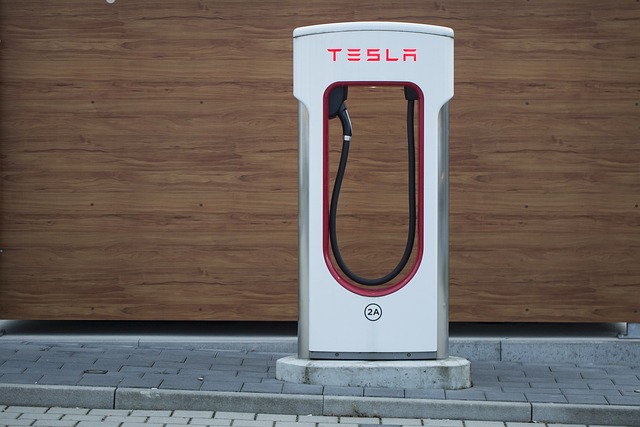As the world shifts towards a greener and more sustainable future, electric vehicles (EVs) have emerged as a promising solution to combat climate change and reduce our dependence on fossil fuels. With the rising popularity of EVs, the need for accessible and efficient charging infrastructure has become paramount. As a result, the development of commercial electric car charging stations has become a focal point for urban planners and businesses alike. These stations are integral to supporting the growing number of EV drivers, providing them with the convenience of charging their vehicles while they go about their daily activities. The strategic placement of these stations in commercial areas not only supports current EV owners but also signals to potential buyers that the infrastructure is in place for a seamless transition to electric mobility. One of the critical factors influencing the adoption of EVs is the cost associated with EV charger installation. To better comprehend the complexities of EV charger costs, it is essential to delve into the various components that contribute to the price tag, understand the requirements for their installation, and explore potential solutions for widespread adoption.
Breakdown of EV Charger Costs
EV charger cost comprises several elements, each contributing to the overall price. The primary components include hardware, installation, electrical upgrades, networking, and ongoing maintenance.
- Hardware: The hardware cost of an EV charger varies depending on the charging speed and capabilities. Level 1 chargers, which are the most basic and require a standard household outlet, are relatively inexpensive, usually ranging from $300 to $700. On the other hand, Level 2 chargers, which necessitate a 240-volt circuit and offer faster charging times, can cost anywhere between $600 to $2,000. DC fast chargers, the fastest charging option, are significantly more expensive, ranging from $10,000 to $50,000 or more, depending on the power output and brand.
- Installation: The installation expenses encompass the labour costs, permits, and any necessary modifications to accommodate the EV charging station. Factors influencing installation costs include the location of the charger, the distance from the electrical panel, and the complexity of wiring. On average, Level 2 charger installations can cost between $500 to $2,000, while DC fast charger installations can escalate to $50,000 or more, especially in cases where extensive electrical infrastructure upgrades are required.
- Electrical Upgrades: In some cases, the existing electrical infrastructure may not be sufficient to support the charging station’s power requirements. Upgrades to the electrical panel, wiring, and circuits might be necessary, especially for DC fast chargers. These upgrades can significantly add to the overall cost, ranging from a few thousand to tens of thousands of dollars.
- Networking: Connecting the charging station to a network allows for remote monitoring, user access control, and potential revenue generation for charging providers. Networking solutions come with additional costs, including monthly subscription fees and setup charges, which can vary depending on the service provider and the level of features required.
- Ongoing Maintenance: Like any other technology, EV chargers require regular maintenance to ensure optimal performance and user safety. The cost of maintenance will depend on the charger type, usage frequency, and any necessary repairs or replacements.
Requirements for the Installation of EV Chargers
The installation of EV chargers involves adhering to certain requirements to ensure safety, efficiency, and compliance with regulations. Some key considerations include:
- Electrical Capacity: The electrical capacity of the property must be assessed to determine if it can support the additional load of the charging station without causing overloads or disruptions to other electrical devices.
- Permitting and Codes: Local building codes and regulations must be followed when installing EV chargers. Permits may be required, and the installation must be compliant with safety standards to prevent hazards.
- Location: The location of the charging station should be strategically chosen for ease of access, user convenience, and adherence to any zoning regulations.
- Charging Speed: The desired charging speed and usage patterns of the EV charging station should be considered when selecting the appropriate charger type.
Why You Should Work With An Expert When Installing EV Chargers
As electric vehicles (EVs) gain popularity and become a mainstream choice for environmentally-conscious individuals and businesses, the need for reliable and accessible charging infrastructure has become more pressing than ever. Installing EV chargers is a critical step in promoting the widespread adoption of electric mobility, and doing it right is essential for a seamless charging experience. While some may consider installing EV chargers as a DIY project or entrusting it to inexperienced contractors, there are several compelling reasons why working with an expert is the wisest decision. Let’s explore the benefits of collaborating with an expert when installing EV chargers.
1. Ensuring Safety and Compliance
When it comes to electrical installations, safety should always be the foremost concern. EV chargers require proper electrical connections, grounding, and protection mechanisms to prevent accidents such as electrical fires, electric shocks, or damage to vehicles. Certified experts have the necessary knowledge, training, and experience to adhere to safety protocols and ensure compliance with local building codes and regulations. Working with an expert mitigates the risk of hazardous installations and offers peace of mind to both EV owners and charging station operators.
2. Proper Site Assessment and Planning
Installing EV chargers involves more than just finding a suitable location and mounting the charging station. An expert will conduct a thorough site assessment to determine the optimal positioning of the charger, considering factors such as power availability, proximity to electrical panels, parking layouts, and user convenience. A well-planned installation can optimize charging efficiency, reduce energy wastage, and maximize the number of EVs that can be served simultaneously.
3. Handling Electrical Upgrade
In some cases, installing EV chargers may necessitate upgrades to the existing electrical infrastructure to support the increased power demand. This can involve modifications to the electrical panel, wiring, and circuits. Experts have the expertise to assess the electrical capacity of the property accurately and recommend and execute the necessary upgrades. Incorrect upgrades can lead to power imbalances, electrical failures, and costly repairs down the line.
4. Selecting the Right Charger Type
There are different types of EV chargers available, ranging from Level 1 chargers (standard household outlets) to Level 2 chargers (240-volt circuits) and fast DC chargers. The charger type you choose depends on factors such as charging speed requirements, user demand, and budget constraints. An expert can help you evaluate your needs and recommend the most suitable charger type for your specific application.
5. Network Integration and Management
For commercial charging stations or larger installations, network connectivity is crucial. Networking allows for remote monitoring, user access control, payment processing, and software updates. An expert can assist in selecting the right network solutions and integrating the charging station into existing networks or setting up new ones. This ensures a seamless user experience and provides essential data for analytics and billing purposes.
6. Future-Proofing Your Investment
Working with an expert ensures that your EV charging installation is future-proofed. As technology evolves, new charging standards and innovations may emerge. An expert can anticipate these developments and design a system that can accommodate upgrades and adaptations without the need for significant overhauls.
Conclusion
As electric vehicles continue to gain momentum, the cost of EV charger installation remains a crucial factor in promoting their widespread adoption. Understanding the components contributing to the overall price tag, such as hardware, installation, electrical upgrades, networking, and maintenance, enables stakeholders to make informed decisions regarding the establishment of charging infrastructure. Moreover, adhering to the requirements for safe and compliant installations ensures a seamless transition to electric mobility, paving the way for a cleaner and more sustainable future. With advancements in technology and supportive policies, the accessibility and affordability of EV chargers are expected to improve, making electric vehicles an increasingly attractive option for consumers and businesses alike.







